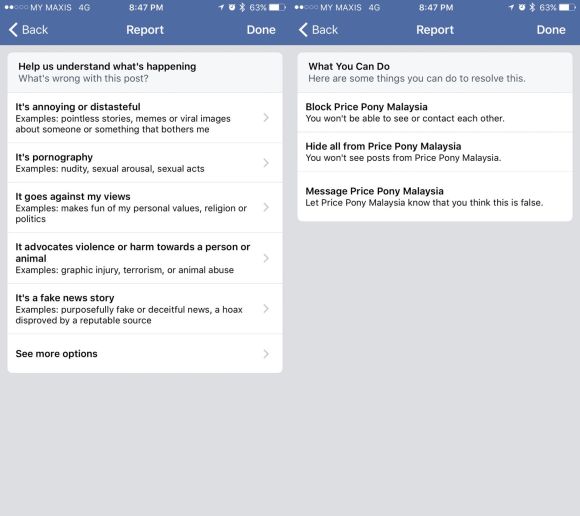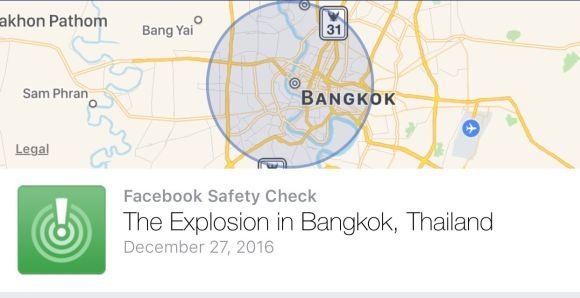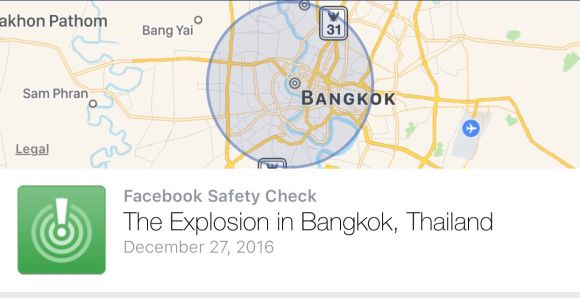There are lots of fake news on our social feed these days. What’s more disturbing is they are ridiculously more popular due to its sensationalised headlines. Sadly, most people wouldn’t even bother to verify the news before hitting the share button. Mark Zuckerberg had mentioned that 99% of what you see on Facebook is authentic but he pledged to do more to tackle fake stories on their social network.
If you have friends who are in Bangkok yesterday, you probably would have gotten a notification through Facebook’s Safety Check feature, indicating that they are safe from an alleged explosion. It turns out there was no serious explosion in Bangkok at all.
The "source" of the @Facebook Safety Check for Bangkok: A fake news site that scrapped stuff from elsewhere…! pic.twitter.com/i6Q2k8XBxP
— Saksith Saiyasombut (@SaksithCNA) December 27, 2016
Apparently, Facebook got duped into thinking there was an explosion in central Bangkok. The culprit? A fake news site by the name of bangkokinformer.com that had reported an old Bangkok bombing story that happened last year.
When The Verge reached out to Facebook, they replied with the following:
“Safety Check was activated today in Thailand following an explosion. As with all Safety Check activations, Facebook relies on a trusted third party to first confirm the incident and then on the community to use the tool and share with friends and family.”
There was an incident yesterday involving a man at a Government House compound which threw firecrackers from the rooftop. Somehow Facebook’s automated system had linked the two separate news by mistake which prompted the Safety Check alert. Facebook should probably do some real fact-checking before pushing out any emergency alerts.

It is obvious that fake news is a serious problem and those running them are making lots of money out of gullible folks. It is getting out of control especially in Malaysia and Facebook isn’t doing much to prevent them from thriving. Facebook has recently added an option to report fake news but the solution is either to contact the page owner or to block such news from your feed.
According to MCMC, a lot of Malaysians can’t even tell the difference between real and fake news. What’s worrying is that 69% of Malaysians are getting their news from social media according to the 2016 Reuters Institute Digital News Report.
The best solution is to avoid sharing news from dubious sources. Whenever you’re in doubt, Google is your friend to verify if it’s true. If you have friends who have shared content from fake news sites, you can play your part by advising them to remove the post and avoid such pages in future.









